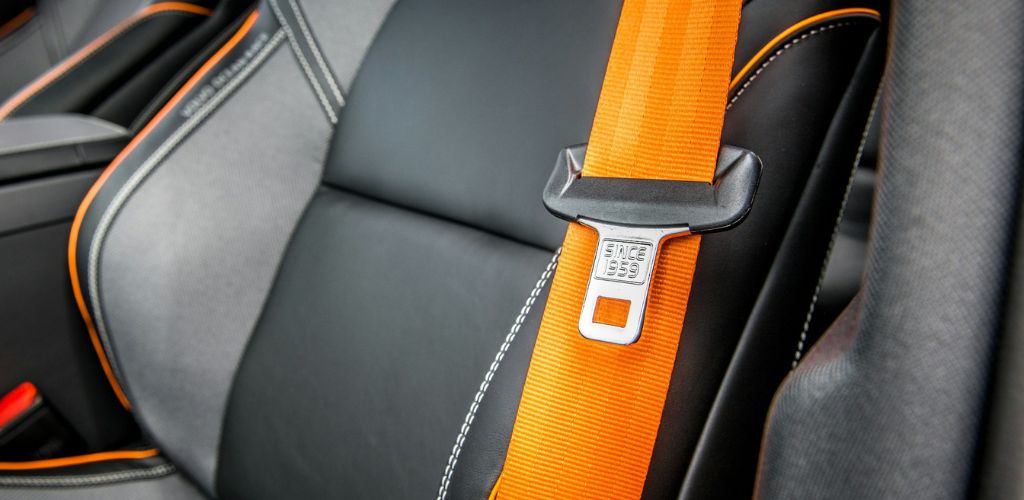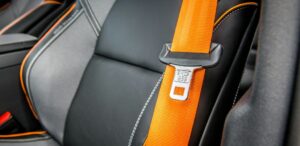Your vehicle needs to give you security when you drive it; you shouldn’t be worried about defective car parts malfunctioning and causing your or your passengers harm. Unfortunately, vehicle defects can lead to serious injuries. The car accident lawyers at García Injury Law will help you fight for your right to compensation from negligent manufacturers.
Types of Defective Auto Parts Leading to Accidents
Any part of a car that malfunctions without undue strain can be considered defective; however, there are parts of a car that can be more dangerous than others when they are defective.
Air Bags
Airbags may malfunction in one of several ways. They may:
- Not deploy when needed
- Deploy too forcefully, causing injury to a driver or passenger
- Deploy unexpectedly when not needed
While they are an important safety feature, unreliable airbags can be responsible for external or internal injuries if they deploy at the wrong time. Ensuring that airbags are reacting to necessary crashes, and not at other times, is crucial to safety.
Seat Belts
Seat belts that malfunction during a crash can have deadly consequences. Although seat belts were not mandatory in cars until 1968, they have been proven to save thousands of lives each year and are an essential safety component of vehicles. Even a sudden stop from miles as low as 15 miles per hour can cause whiplash or nerve damage, which is why it’s important to have seat belts you can count on.
Brakes
Brakes that do not function properly can lead to crashes and accidents. If a person driving a car cannot slow down or stop on time, multiple people, including pedestrians, are at risk of injury.
Tires
Tires that cannot stand the pressure of a thousand-plus pound vehicle, or that pop on the road, can cause a car to serve dangerously into oncoming traffic, or veer into other vehicles or stationary objects.
Steering System
If the steering wheel does not respond, cars may run off the road or be unable to avoid accidents with other cars or pedestrians. While steering malfunctions can occur from regular wear and tear, they may also occur from fluid leaks or pump malfunctions that may be the result of faulty manufacturing.
Headlights
According to the National Safety Council, driving at night increases your chance of crashing. Headlights that do not work can lead to an increase in accidents during the night or cloudy days.
Legal Framework of Product Liability Claims
A manufacturer should be responsible for the production of all parts. Manufacturers may be directly or indirectly liable for product failure. There are two concepts at play, here:
- Negligence means a manufacturer released a product into the world, knowing it was unsafe, or had unsafe tendencies, or that they did not meet certain legal safety requirements when creating the product.
- Strict liability means that a manufacturer is responsible, regardless of whether or not they knew the product was defective.
You do not need to prove negligence to submit a product liability claim but can file a claim on strict liability alone, so long as you can prove specific requirements.
The Role of Manufacturer Liability in Auto Part Defects
If a product or part has passed inspection in error and is not fit to be used, the manufacturer needs to be responsible and remove the product from consumer marketplaces.
While manufacturers don’t want defective products flooding the market, there have been past cases where a company failed to remove or recall products in a timely fashion, even once a defect or danger of the product is learned about. Whether or not the manufacturer knows about the defect, they are responsible for the quality of their product.
Proving Negligence and Strict Liability in Defective Auto Part Cases
Strict product liability places the responsibility squarely on the manufacturer; however, there is still the laborious process of proving your claim to be able to receive compensation. To prove that an auto part was defective and was the sole reason for the accident and subsequent injuries, you need to establish the following:
- That you interacted with or used the product in the manner it was intended and not irresponsibly. This also means that you did not tamper or alter the product in any way that would affect its integrity.
- That the product was defective and should not have passed a quality control inspection.
- That the accident and your injuries were a direct result of the defective product.
In a situation with a car part that malfunctions, this corresponds to:
- Providing documentation about the events and your actions while driving that lead up to the accident.
- An investigation into the product’s malfunction, often conducted by the companies or insurance companies.
- Medical bills relating directly to your injuries from the accident.
It is most common to file a claim against a manufacturer in a product liability scenario; the only time a distributor or wholesaler would be held liable would be if they were responsible for making adjustments to the product, which then led to your accident and injuries.
Strict liability in Texas covers defective products where the product causes damages and injuries. However, if it can be proved that the manufacturer knew about the dangers of the product before releasing it, then you can also prove negligence.
How Long Do I Have to Submit a Product Liability Claim?
Much like a personal injury claim, the statute of limitations for a car accident liability claim is only two years. It is best to begin your product liability claim as quickly as possible after the accident. This way, a more thorough investigation of the product can be completed; you will be able to have a better memory of the events as they occurred, and the process of negotiation can start sooner. If you need assistance in navigating the claims process, it’s a good idea to turn to experienced legal providers.
What Can a Lawyer Do For You?
The hard part about submitting a liability on a defective vehicle part is that a manufacturer’s insurance company comes into play; in fact, depending on the part that was defective, several companies might have had their hands on either making the part that malfunctioned or putting it together in the car. A thorough investigation will be held by all parties to see who is at fault—but that leaves you, the victim, trying to hold your own against companies who will want to save as much money as possible and try to give you the lowest compensation they can for your injuries.
The attorneys at García Injury Law are dedicated to helping our clients hold negligent manufacturers responsible for their role in accidents and injuries. We can:
- Manage communication and negotiation with insurance companies
- Help gather evidence and conduct an investigation of the defective product
- File your liability claim
You want an experienced defective auto parts lawyer on your side when dealing with product liability.
Contact García Injury Law Today
You deserve to trust the products you use and rely on daily. That’s why our lawyers at García Injury Law are here to manage your defective liability claim. We can help you recover the compensation you need to heal from the accident. Send us a message online to get started on your claim, or call us at 512-474-4487.




